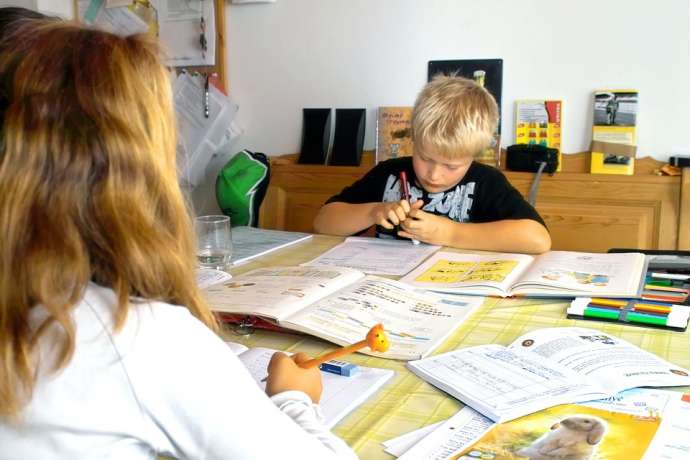Časoris is an online newspaper aimed at children. Each week we’ll take an article and post it here as a Slovene-English dual text.
Otroci so v šoli tudi na varnem, na toplem, niso lačni in niso žejni
Children are also safe, warm, not hungry and thirsty at school
Written by Sonja Merljak Zdovc, translated by JL Flanner & G Translate
Da igra šola v življenju otrok zelo pomembno vlogo, nam je zdaj bolj jasno kot kdajkoli prej.
It is now more clear than ever that school plays a very important role in children's lives.
Poleg osnovne vloge, izobraževanja, ima še številne druge, pravi klinična psihologinja dr. Mateja Hudoklin iz Svetovalnega centra za otroke, mladostnike in starše.
Besides the basic role, education, there are many others, says clinical psychologist Dr. Mateja Hudoklin from the Counselling Center for Children, Adolescents and Parents.
V šoli se otroci družijo, navezujejo stike z vrstniki in odraslimi, se urijo v socialnih veščinah, učijo se uravnavati svoje vedenjske in čustvene odzive.
At school, children socialise, interact with peers and adults, learn social skills, learn to regulate their behavioural and emotional responses.
Ali je to enako pomembno za vse otroke?
Is this equally important for all children?
Marsikdaj zadovoljuje tudi tiste potrebe, ki bi jih moralo zadovoljevati ožje otrokovo okolje.
Many times it also meets the needs that should be satisfied by the child's environment.
Otroci so v šoli na varnem, na toplem, niso lačni in niso žejni. Šolsko življenje nudi strukturo, z vsemi pravili in odnosi in vse to otrokom daje občutek varnosti. Večina otrok v šoli najde prijatelje, simpatije, tudi odrasle vzornike.
Kids are safe, warm, not hungry or thirsty at school. School life offers a structure, with all the rules and attitudes, and it gives children a sense of security. Most children find friends, warmth, even adult role models at school.
Mnogi otroci vsega tega ne dobijo v družinskem okolju.
Many children do not get all this in a family setting.
Kako pa to, da ni šole, vpliva na otroke?
How does being out of school affect children?
Prve tedne je bilo ostajanje doma verjetno za večino otrok prijetno, mnogi so jih doživljali kot male počitnice.
For the first few weeks, staying home was probably enjoyable for most children, many experiencing it as a small vacation.
Sčasoma se ti občutki spreminjajo. Vedno bolj pogrešajo stike z vrstniki, aktivnosti.
Over time, these feelings change. They are increasingly missing peer contacts, activities.
Mnogi otroci težko samostojno delajo za šolo in potrebujejo pomoč staršev. To je lahko vir dodatnih napetosti doma. Mnoge tudi skrbi, kako bo z ocenami.
Many children find it difficult to work independently for school and need the help of their parents. This can be a source of additional tension at home. Many also worry about how the grades will be.
Negotovost povečuje zaskrbljenost in občutek tesnobe. Zdaj toliko bolj prihaja v ospredje, v kakšni družini in okolju živi otrok.
Uncertainty increases fear and anxiety. Now the family and environment a child lives in come to the fore.
Read more stories and improve your Slovene at Časoris, while all our dual texts can be found here.







